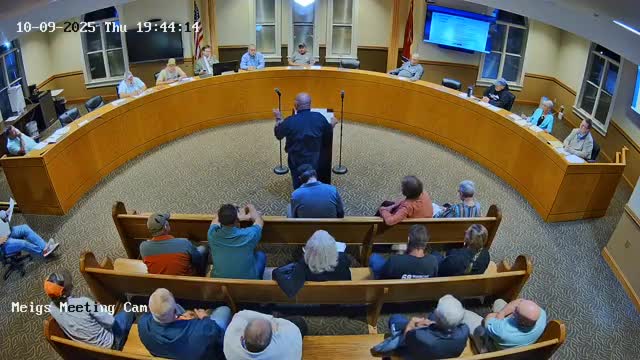County ambulance operator warns service at risk; proposes fee changes, subscription and volunteer pathways
Get AI-powered insights, summaries, and transcripts
Subscribe
Summary
An ambulance service representative told the commission staffing shortages and insufficient revenue threaten operations; proposals included rate increases, using billing vendors, recruiting volunteers and exploring a subscription or "friend of EMS" fundraising vehicle
An ambulance service representative told the Meigs County Commission the county’s emergency medical services are under severe strain and that without changes the private provider may be forced to reduce or suspend service.
The representative, speaking in detail about operations and finances, said the service has experienced staff shortages and that current budgets do not allow sustained staffing levels. He said billing revenue and outsourced billing arrangements have increased collections in recent years but that overall reimbursement and call mix make the service financially fragile.
He proposed a set of options to improve stability: increasing fees and adjusting hourly rates; using outsourced billing (which the presenter said had improved revenue year over year); providing pay adjustments funded by higher fees; and recruiting volunteers or training firefighters and other community members to become licensed first responders or EMTs. He also suggested establishing a 501(c)(3) “friends of EMS” or a subscription model (voluntary household subscription) to generate regular revenue to reduce per-call charges for subscribers.
Why it matters: the ambulance service is a core public-safety function; interruptions or reductions in coverage could affect response in crash, medical and fire incidents countywide.
The presenter said some calls that now result in transports are driven by families’ wishes or the need to rule out emergent conditions that cannot be diagnosed in the field. He described using available trained staff and firefighters as a practical workaround for multiple-patient incidents and said multi-agency mutual aid is used when necessary.
Commission discussion touched on legal and administrative limits for fundraising and billing: the speaker said Tennessee law restricts some charitable activities (he noted limitations on raffle/cash-prize-style fundraisers for 501(c)(3)s) and that attorneys would need to confirm what kinds of subscription or prize fundraising are permissible. Participants also asked about whether volunteers could be certified and whether a nonprofit fundraising entity would be feasible; the presenter said a “friends of EMS” nonprofit and household subscription were both possible avenues but that statutory and administrative details would need legal review.
The presenter urged the commission to consider a revenue-side approach (rate increases and subscriptions) combined with targeted pay adjustments to retain staff. He said the current strain has forced aggressive recruiting and frequent overtime and that personnel losses could force service reductions.
Speakers identified in this discussion included an ambulance service representative (unnamed in the transcript), Sandy Banks (identified as “the Redwood Realtor” in remarks), and a reference to a person named Mister Reyes. Planning and legal staff were asked to explore fundraising and legal options for any proposed nonprofit or subscription model.
No formal action or vote on rates or new revenue sources occurred at the meeting; the representative asked the commission to consider proposed rate and funding changes and to allow staff to follow up.
